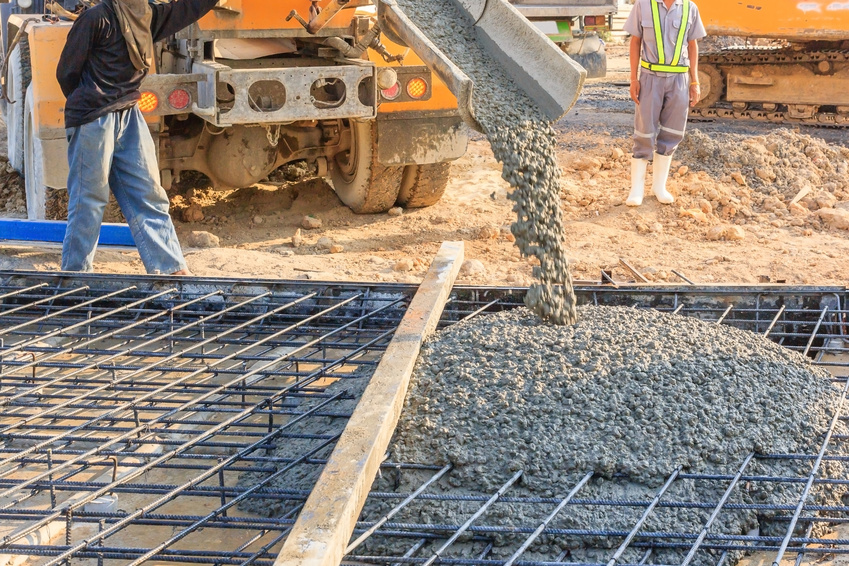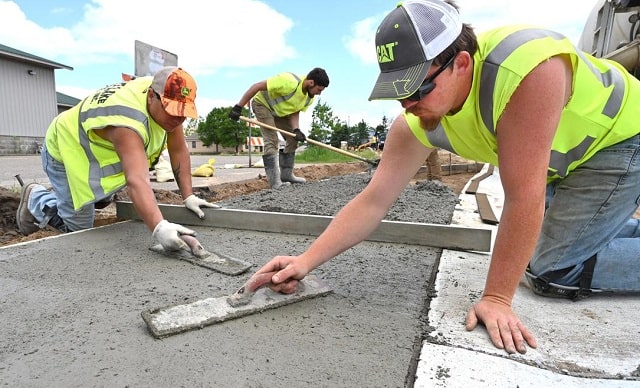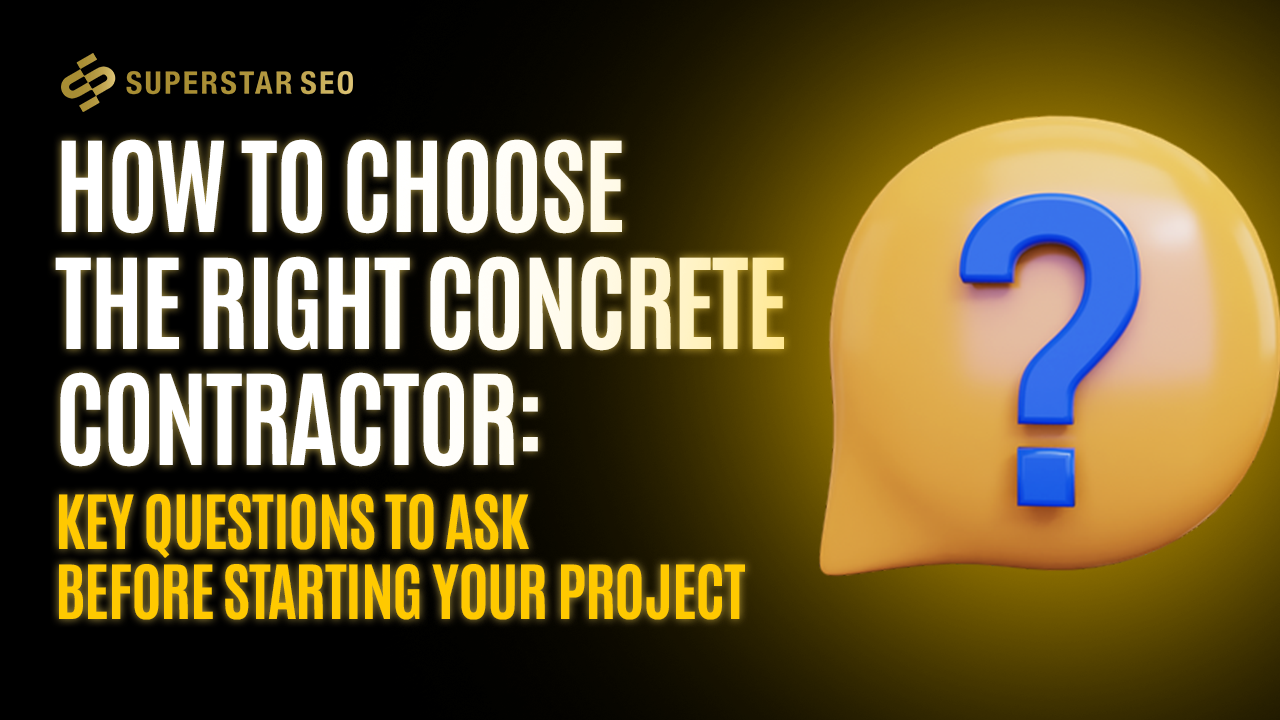What Qualifications And Certifications Should I Look For In A Concrete Contractor?
Choosing the right Concrete Contractor is crucial for the success of your project. One of the key factors to consider is the contractor's qualifications and certifications. Before hiring a concrete contractor, it's essential to ensure that they possess the necessary credentials to perform the job effectively.
A reputable concrete contractor should be licensed and insured. A valid license demonstrates that the contractor has met the required standards and has the expertise to handle concrete projects. Additionally, insurance is crucial to protect both you and the contractor in case of accidents or damages during the construction process.
Certifications from industry organizations are also indicative of a contractor's commitment to quality and professionalism. Look for certifications from bodies such as the American Concrete Institute (ACI) or the National Ready Mixed Concrete Association (NRMCA). These certifications show that the contractor is up-to-date with industry standards and practices.
In addition to official certifications, consider the contractor's experience in the field. Ask about their previous projects and inquire whether they have experience with similar types of concrete work. An experienced contractor is more likely to deliver high-quality results and handle any challenges that may arise during the concrete project.
When evaluating qualifications, don't hesitate to ask for references from past clients. Contacting these references can provide valuable insights into the contractor's work ethic, communication skills, and overall performance.
How Can I Verify A Concrete Contractor's Previous Work And Reputation?
Before starting a construction project, it is crucial to prioritize the reliability and reputation of a concrete contractor. One of the most effective ways to achieve this is by conducting a thorough verification of the contractor's past work and reputation.
Start by asking the Concrete Contractor for a portfolio of their completed projects. A comprehensive portfolio should showcase a variety of projects, highlighting the contractor's versatility and ability to handle different types of concrete work. Pay attention to the quality of craftsmanship, attention to detail, and overall aesthetics of the completed projects.
In addition to reviewing the portfolio, seek out online reviews and testimonials from previous clients. Reliable concrete contractor often have a digital presence, and customer reviews can provide valuable insights into their work ethic, communication skills, and the ability to meet project deadlines. Pay attention to both positive and negative reviews to get a balanced perspective.
Another effective method is to ask the contractor for references. Contacting past clients directly allows you to ask specific questions about their experience working with the contractor. Inquire about the contractor's professionalism, adherence to timelines, and the overall satisfaction of the clients with the completed project.
Industry affiliations and memberships can also serve as indicators of a contractor's reputation. Contractors who are members of reputable industry associations often adhere to higher standards and ethical practices. To further validate a contractor's reputation, check with local business bureaus and licensing boards. Any history of complaints, disputes, or legal issues should raise a red flag.

What Questions Should I Ask A Concrete Contractor About Project Timelines?
When choosing a Concrete Contractor for your project, it's essential to ask specific questions about project timelines. Understanding the estimated time frame for completion will help you plan accordingly and ensure a smooth and efficient process. Here are some key questions to ask a concrete contractor about project timelines:
What is the estimated start date for the project? Understanding when the project will begin allows you to plan accordingly and coordinate with other aspects of your construction schedule.
How long is the anticipated duration of the project? Knowing the expected timeline for completion helps in setting realistic expectations and managing your time and resources effectively.
Are there potential factors that could cause delays? Identifying potential challenges or delays in advance enables you to proactively address issues and prevent unnecessary setbacks.
What steps will the contractor take to ensure the project stays on schedule? A reliable contractor should have a plan in place to manage and mitigate potential delays, demonstrating their commitment to meeting deadlines.
How often will the contractor provide updates on the project's progress? Regular updates ensure that you stay informed about the project's status and can address any concerns promptly.
What happens if the project encounters unforeseen delays? Understanding the contractor's approach to unexpected delays helps you prepare for possible disruptions and develop contingency plans.
Does the contractor have a history of completing projects on time? Reviewing the contractor's past performance in meeting deadlines provides insight into their reliability and ability to manage project timelines effectively.
What measures will be taken to expedite the project if needed? Inquiring about strategies to speed up the project, if necessary, demonstrates the contractor's commitment to meeting your timeline requirements.
Is the project timeline affected by weather conditions? Weather can impact concrete projects, so it's important to discuss how adverse weather conditions will be addressed to minimize delays.
What penalties or incentives are in place related to project timelines? Discussing penalties for delays or incentives for early completion provides a clear framework for holding the contractor accountable for the project timeline.
Choosing the Right Concrete Contractor for Your Project
When it comes to construction projects, finding a competent concrete contractor is paramount. Whether you're planning to build a new structure or renovate an existing one, the success of your project hinges on the expertise and reliability of the contractor you choose. With numerous potential contractors vying for your attention, it's essential to sift through the options carefully.
Experienced concrete contractors are invaluable assets in any construction endeavor. Their knowledge of key building materials and techniques ensures that your residential or commercial project is executed with precision and efficiency. However, not all contractors are created equal. It's crucial to conduct thorough research and vetting to identify the right contractor for your specific needs.
One of the first steps in hiring a concrete contractor is to obtain detailed written estimate from multiple candidates. This allows you to compare prices, timelines, and proposed approaches to the project. Look for contractors who prioritize quality work and are willing to provide a comprehensive breakdown of costs and services.
Furthermore, creating written contracts is essential to protect both parties involved in the project. A well-drafted contract outlines the scope of work, timelines, payment terms, and any other pertinent details. Additionally, reputable contractors will have insurance coverage, providing you with added peace of mind in case of any unforeseen incidents. If necessary, don't hesitate to liaise with your insurance company directly to ensure that all necessary precautions are in place.
Ultimately, hiring the experienced concrete contractors the foundation for a successful construction project. By prioritizing experience, quality work, and clear communication, you can ensure that your project is completed to your satisfaction and within budget.
What Factors Should I Consider When Comparing Quotes From Different Concrete Contractors?
Ensure that each quote outlines the specific scope of work to be performed. A detailed breakdown allows for accurate comparisons and helps prevent misunderstandings. Examine the type and quality of materials included in each quote. Cheaper materials may impact the longevity and durability of the project.
Understand the labor costs associated with each quote. Skilled and experienced labor may come at a higher cost but can contribute to better results. Evaluate the proposed project timeline in each quote. A realistic and well-defined timeline helps in planning and coordination with other aspects of your construction project.
Verify that each contractor has the necessary insurance coverage. A contractor with comprehensive insurance provides an additional layer of protection for your project. Assess the warranties and guarantees offered by each contractor. A confident contractor willing to stand by their work may provide longer and more comprehensive warranties.
Consider the level of experience and expertise each contractor brings to the table. Contractors with a proven track record in similar projects are more likely to deliver quality results. Seek references and read reviews for each contractor. Insights from previous clients can provide valuable information about the contractor's reliability and professionalism. Evaluate the communication style and willingness to collaborate displayed by each contractor. Effective communication is crucial for a successful construction project.
Scrutinize each quote for hidden costs or potential extra charges. Transparency in the quoting process helps prevent unexpected financial surprises.
By considering these factors, you can make a comprehensive assessment of each quote and select a established concrete contractor that not only fits your budget but also aligns with your project requirements and expectations. Remember that the cheapest option may not always be the best, and investing in quality and reliability upfront can lead to long-term project success.
What Steps Can I Take To Ensure That The Concrete Contractor Uses High-quality Materials For My Project?
Clearly outline your expectations regarding the type and quality of materials in your project contract. Specify factors such as concrete mix design, reinforcement specifications, and any additional materials needed. Inquire about the concrete contractor's preferred suppliers. Reputable suppliers often provide high-quality materials, and knowing the source of the materials adds transparency to the process.
Educate yourself about the different types of concrete and other materials relevant to your project. This knowledge allows you to discuss options with the contractor and make informed decisions. Ensure that the materials proposed by the contractor meet or exceed industry standards. Familiarize yourself with local building codes and standards to confirm compliance.
Ask the contractor for samples of the proposed materials. Examining samples allows you to visually assess the quality and appearance of the materials before they are incorporated into your project. Gain an understanding of the concrete mix design proposed for your project. The mix design influences the strength and durability of the concrete, and a knowledgeable and good concrete contractor will be willing to discuss this with you. If possible, visit the concrete supplier or other material suppliers suggested by the contractor. Seeing the materials firsthand and understanding the supplier's reputation provides added assurance.
Verify that the materials proposed for your project have relevant certifications. This is especially important for specialty materials or those subject to specific quality standards. Carefully review the project contract, paying close attention to the section on materials. Ensure that the contract explicitly specifies the agreed-upon materials and any quality standards that must be met. Request documentation for the materials used in your project, including invoices or receipts from suppliers. This paperwork serves as evidence that the agreed-upon materials were indeed utilized.

Example of a Concrete Driveway Project from Start to Finish
Initial Consultation The homeowner reaches out to a dependable Concrete Contractor for a new driveway installation. The contractor visits the site, assesses the area, and discusses the homeowner's requirements and preferences.
Design and Planning The contractor collaborates with the homeowner to create a design that meets their needs and complements the overall aesthetic of the property. They discuss factors like driveway dimensions, layout, slope, and any additional features such as decorative elements or borders.
Permitting and Approvals The contractor assists the homeowner in obtaining any necessary permits or approvals required by local authorities. This process ensures that the project complies with building codes and regulations.
Excavation and Site Preparation The employees begin by excavating the existing driveway or preparing the ground if it is a new installation. This step involves removing any obstacles, grading the area, and ensuring proper drainage.
Formwork and Reinforcement The contractor installs formwork along the edges of the driveway to create a defined shape. They may also add reinforcement, such as steel rebar or wire mesh, to enhance the strength and durability of the concrete.
Concrete Pouring Now it is time to bring in the concrete mixture and pour it into the prepared area. Workers use professional techniques to ensure an even and consistent distribution of the concrete, avoiding any air pockets or weak spots.
Finishing and Texturing Once the concrete is poured, the contractor uses various tools to achieve the desired finish and texture. This can include techniques like broom finishing, stamping, or exposed aggregate, depending on the homeowner's preference.
Curing and Protection Shield the recently poured concrete from drying too quickly or being damaged by external factors. Employees may use curing compounds, coverings, or plastic sheeting to facilitate proper curing and prevent cracks.
Final Touches After the concrete has cured, the contractor removes the formwork and cleans the driveway. To extend the life and improve the appearance of the concrete, they might also apply a sealant or protective coating.
Project Completion Together with the homeowner, the contractor performs a final inspection to make sure everything about the project lives up to their expectations. The driveway adds a useful and attractive feature to the property and is operational as soon as it is approved.





